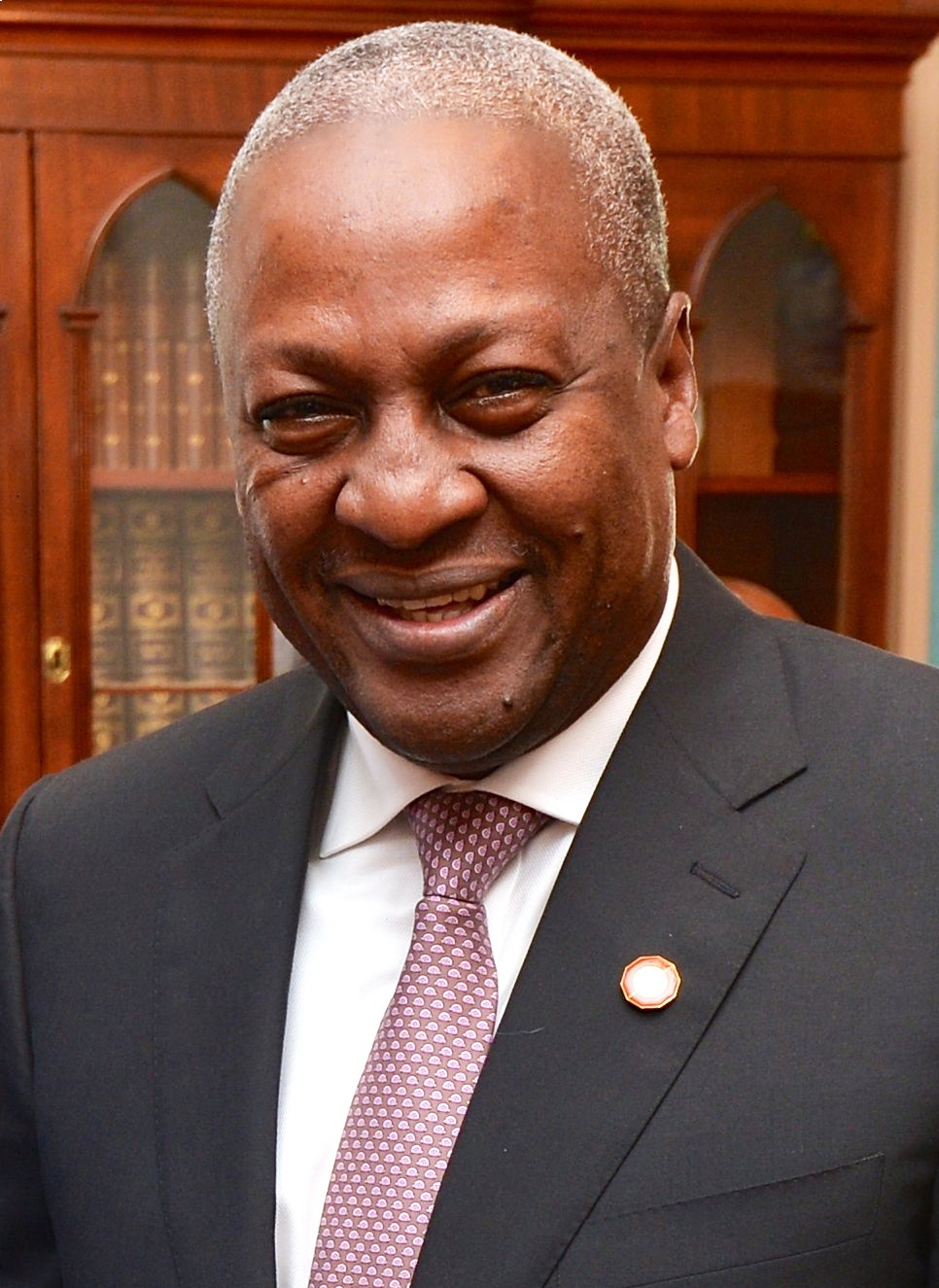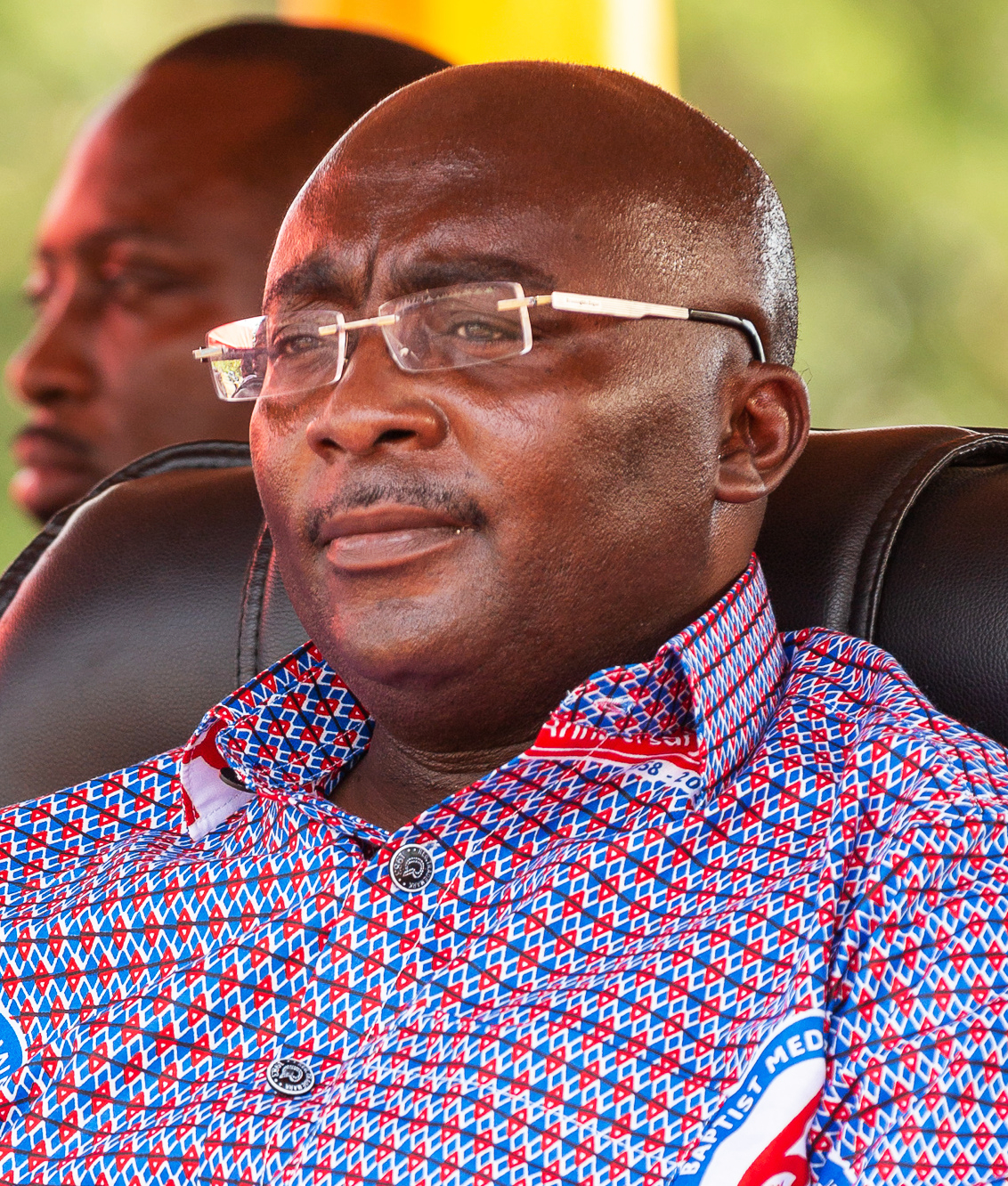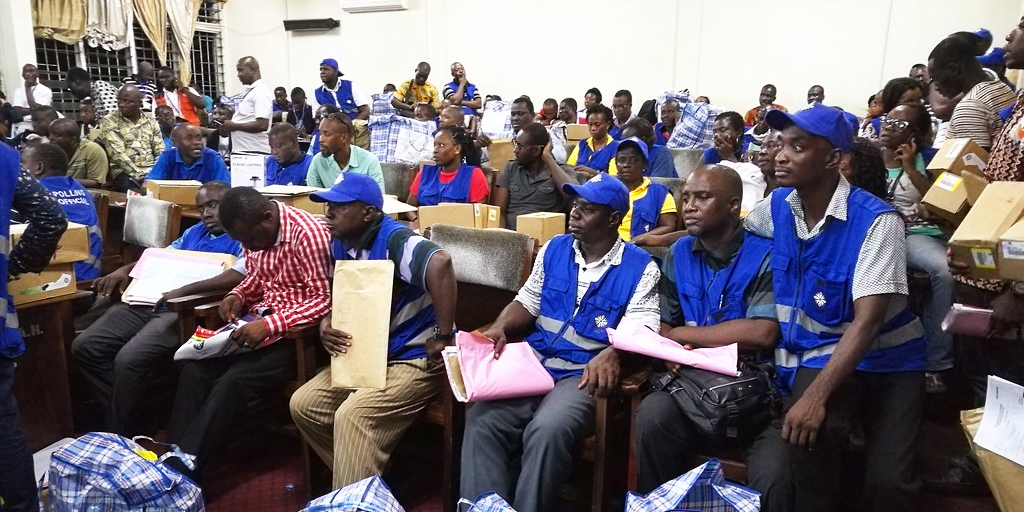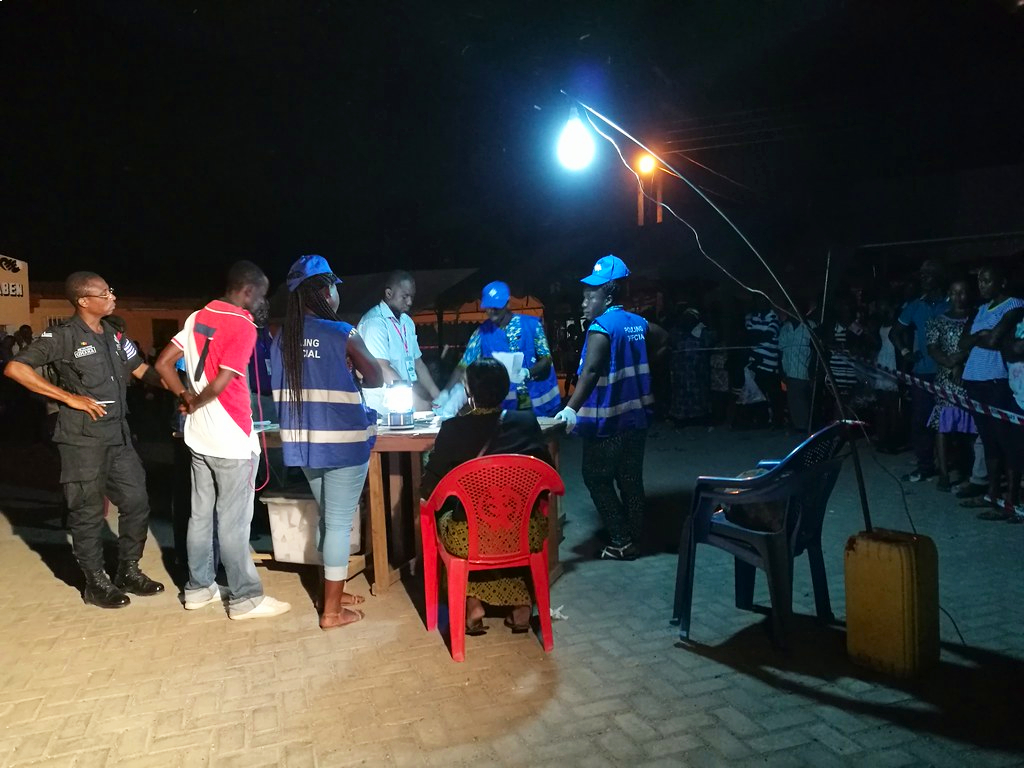Ghana’s presidential elections will usher in a new leader as President Nana Akufo-Addo steps down after completing his constitutionally limited second term in office. This will mark Ghana’s fifth presidential succession since the return to democratic multiparty politics in 1992, augmenting Ghana’s reputation for having institutionalized predictable and rules-based presidential transitions. Three of these previous transitions were between rival political parties, further underscoring Ghanaians commitment for respecting electoral outcomes and power sharing.

John Mahama. (Photo: U.S. Department of State)
These power transfers have occurred between Ghana’s two leading political parties, Akufo-Addo’s New Patriotic Party (NPP) and the National Democratic Congress (NDC). The NDC presidential contender is John Mahama, Ghana’s president from 2012 to 2017. He lost highly competitive elections to Akufo-Addo in 2016 and 2020 and solidified his democratic credentials by graciously accepting his razor-thin defeat as the incumbent in 2016 and facilitating the smooth transfer of power.

Dr. Mahamudu Bawumia. (Photo: Rwhaun)
The NPP standard-bearer will be Vice President Dr. Mahamudu Bawumia. The former Deputy Governor of the Central Bank is known as a technocrat. As the first Muslim to lead the southern-dominated NPP, Bawumia presents himself as a bridge-builder across Ghana’s diverse electorate.
Given the tightness of recent elections and the parity in Parliament—with each party fielding 137 representatives—this election is also expected to be highly competitive. The outcomes of Ghana’s 50-percent-plus-one two-round elections have largely been accepted by the Ghanaian electorate due to the leadership shown by the rival candidates and trust in the fairness of Ghana’s institutions.
The Electoral Commission has a reputation inside and outside of Ghana for professionalism, independence, and integrity, which the Commission has worked hard to maintain through transparency and consistent communications with all parties. The Commission has adopted the reform of continuous voting registration since the 2020 election to further expand participation.
The Electoral Commission has a reputation for professionalism, independence, and integrity.
Ghana’s democracy benefits from a vigilant and well-organized civil society. Civil society actors have been at the forefront of electoral reforms, expanding citizen participation, and enhancing trust in the process. This includes hosting televised debates between presidential candidates aimed at educating voters of the respective contenders’ positions on substantive policy issues facing the country. Any allegations of corruption also receive strong media attention.
The Inspector-General of Police (IGP) has also historically played a central role in ensuring the independence of the electoral process. This was on display in the 2023 by-elections in Assin North, where initial tensions were calmed after the IGP met with local party leaders, instilling confidence in the security arrangements. The contested seat was ultimately held by the NDC.
Ghana’s military also has a hard-earned reputation for professionalism and neutrality. Based on lessons from previous electoral cycles, the military takes a backseat to the police in providing electoral security but is ready to support when needed.

Polling officials mobilizing during Ghana’s 2016 elections. (Photo: Masjaliza Hamzah)
Ghana’s democratic institutions are not without challenges. The election year has been roiled by rumors that Akufo-Addo will try to replace the IGP, charges that the NPP has denied. The police have also been criticized for periodic heavy-handedness in responding to protests. The Supreme Court ruled in 2023 that the President unlawfully sacked the Auditor-General in 2020 in a case brought by civil society reformers. Moreover, a minority of media outlets controlled by politicians take partisan positions in covering the news, fostering polarization.
The 2024 elections are taking place against a backdrop of strong economic headwinds for Ghana. Owing to the COVID pandemic, disruption of grain and other supply networks due to the Russian invasion of Ukraine, and insufficient monetary and fiscal discipline, Ghanaians have faced rapid inflation. The resulting debt has required an emergency $3-billion IMF bailout, which has put the NPP on the defensive.

Vote counting at a polling station during Ghana’s 2016 elections. (Photo: Hasjaliza Hamzah)
As the pace and lethality of violent extremist organizations (VEOs) in the Sahel intensifies, Ghana also faces a growing threat of violence spilling over its northern border from Burkina Faso. This will require proactive engagement with local communities by government and security officials to counter VEO messaging aiming to amplify grievances and foster distrust toward the government.
Ghanaians must, therefore, navigate regional security as well as national priorities in their 2024 elections. Healthy debate and the articulation of competing visions for a country are central to genuine elections—and the self-correction built into democracies. Ghanaians will need to keep control of the narrative about their elections, however, lest polarizing polemics undermine the very pillars of the country’s painstakingly-secured democratic institutions.


 Ghana: December 7
Ghana: December 7